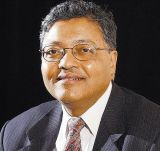Poor Michel Platini. Do you not feel sorry for him? A wonderful footballer, he exchanges his shorts for a suit and becomes an administrator. Under his Presidency, UEFA hosts a European football competition that everyone says is one of the best in recent memory, if not the best ever.
The fears that it will lead to racist violence, and that players might even walk off during a match if they are racially abused, prove unfounded. The football is gripping, indeed so gripping that it brings back memories of great tournaments such as the Mexico World Cup of 42 years past. The Euros concludes with fascinating debates as to whether present-day Spain is better than the 1970 Brazil of Pelé and company and whether they deserve the title of the best football team ever.
Yet, as the celebrated tournament ends, Platini (pictured below) is in the doghouse, at least in the British press. The reason is that he has dared to suggest that a future Euro competition might not be centrally organised but could be spread over a dozen or so European cities. He is immediately condemned as the footballing child of João Havelange and Sepp Blatter, men whose footballing reputations are not great at the moment and who many feel have ruined The Beautiful Game.
Part of this criticism is due to the fact that everyone in football, from those who watch to those who play and run it, abhors change. Anyone suggesting change is seen as the devil. Remember the launch of the European Cup in the 1950s was opposed by the English, who would willingly have aborted that particular child. Indeed the Football League conceived the League Cup as the answer to the European Cup.
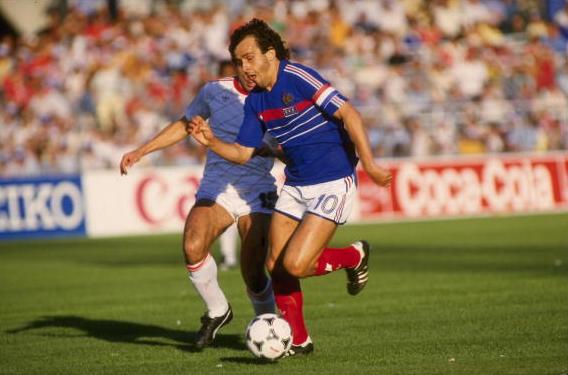
Then, in the 1990s, with the European Cup dying and UEFA planning the Champions League, the very idea of this change being necessary was questioned by many, including the players UEFA consulted. Among the naysayers was Hristo Stoichkov of Bulgaria. They could see no reason why the old format could not just carry on.
It must be recalled that Platini himself, soon after becoming President, mourned the loss of the old European Cup. I can remember him talking of the romance of a big team from a large country going to play an unknown club of a small country and probably being beaten. In his first year he did try to tinker with the system but found that the hold of the Champions League, and its value to the big clubs, was so great that he could not bring back the old days he had known as a player.
And it must be said that, in the past when it came to change, Platini proved himself to be more a Luddite than a revolutionary. Indeed, along with much of the football hierarchy, he has been opposed to technology – such as goal-line technology (pictured below) – despite the overwhelming evidence that the game needs it. He, along with Franz Beckenbauer, has been responsible for the ridiculous delay in introducing it to football.
Platini’s latest idea has come just as European football is getting used to the Euros going from 16 to 24 teams, an expansion that will take effect from Euro 2016 which will be held in his native France. Critics see this as diluting the strength of the competition and introducing teams that will not measure up to the current high standards of the tournament.
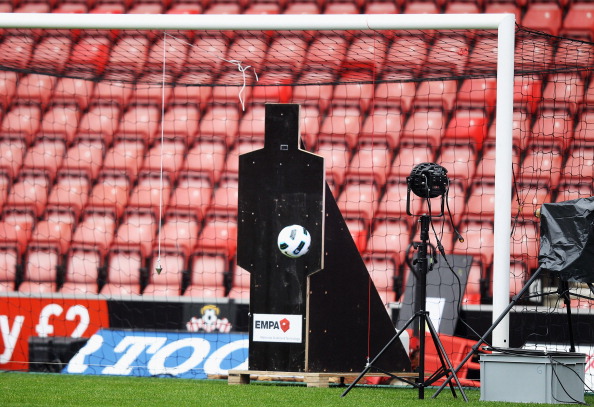
It is the curious nature of football and sport in general that, while those who play it and those who write about it are people who proclaim their belief in the universal values of sport, the moment anything is done which makes it more available they immediately see it as bad. Yet Platini has my sympathy when he suggests that maybe the tournament in 2020 could be spread over many cities.
Look at it this way: when the old European Championship started most of the matches were played on a home and away basis all round Europe, with only the final matches being played in one country. In some ways it was like the Champions League and, even as late as 1976, only four teams took part in the final tournament, which was held in Yugoslavia. The hosts were even required to qualify for that tournament.
The current format of a centrally organised competition only came about in 1980 (pictured below) when the finals was hosted by Italy. In that sense, the Euros is a child compared to the World Cup, Olympics, Commonwealth Games or even Asian Games which have always had a belief in central contracts with hosting countries.
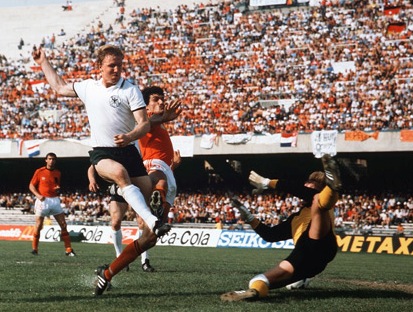
I can also sympathise with Platini when he says that, with Europe facing its worst financial crisis for 70 years, the idea that one, or possibly two, countries should find a lot of money to build stadiums and develop infrastructure for a football tournament is an ask too much.
And here Europe has a particular problem. Olympics and World Cups are global events and there will always be demand from countries to host them. Europe may be in recession but there are many other countries where recession is something they only read about in the media rather than experience it themselves. Many of these countries, and they now include some in Africa, can be expected to want to host the Olympics and the World Cup over the next few years.
In contrast, the dire economic situation is forcing such a rethink in Europe that Rome pulled out of bidding for the 2020 Olympics. UEFA has had such a struggle to generate worthwhile bids for Euro 2020 that, despite being cajoled, the only nations interested are Turkey, a joint Azerbaijan/Georgia bid, and a three-way Ireland/Scotland/Wales bid. With the Turks also going for the Olympics they may in any event pull out of the Euros.
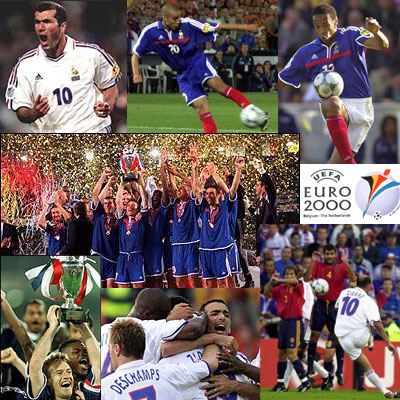
It is against this background that Platini has made his proposals and, by all accounts, his ideas have been well received by the national associations. For what they promise is that a small country like Belgium, for instance, could hope to stage a couple of matches in a future Euro. The country may have jointly staged a Euro with Holland in 2000 – the tournament won by France (pictured above) – but, in today’s economic climate, even that is no longer a viable prospect.
The problem is that Platini has not explained all this. Nor had he prepared the ground for such a radical idea.
As a player he could be magical and could, in an instant, change the course of a game. As an administrator he needs to understand that his constituency is the most conservative in the world and sees all change as unnecessary and dreadful. Its members need to be coaxed and cajoled and cannot be opened up with one sublime pass.
The row he has created by his proposal suggests that he has yet to understand the difference between kicking a ball and looking after the people who kick a ball. The sooner he realises that, the better Platini will make a successful transition from shorts to a suit.
Mihir Bose is one of the world’s most astute observers on politics in sport, particularly football. He wrote formerly for The Sunday Times and the Daily Telegraph and was the BBC’s head sports editor.
Follow Mihir on Twitter.

